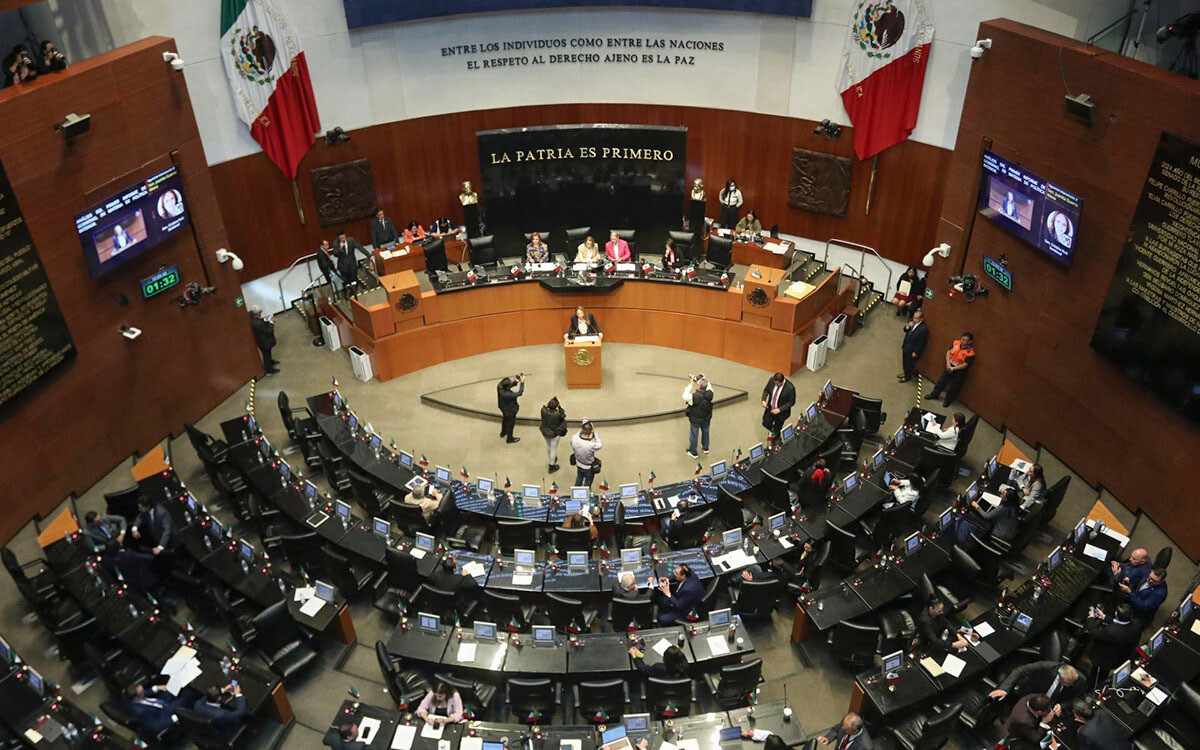
The Senate of the Republic approved the Federal Revenue Law for the 2026 Fiscal Year, which projects revenues of 10 trillion 193 billion 683 million pesos (mdp). The law was approved in general with 79 votes in favor and 37 against, and in particular with 74 votes in favor and 35 against, after the reservations presented by some factions were rejected. The bill was sent to the Federal Executive for promulgation. Of the total amount, five trillion 838 billion mdp correspond to taxes; 641 billion mdp to social security quotas and contributions; 157 billion mdp to rights; and one trillion 631 billion mdp to income from the sale of goods, services, and other concepts. A senator stated that “the government intends to raise more than 10 trillion pesos, but without a plan”. Meanwhile, the Citizen Movement senator, Luis Donaldo Colosio Riojas, criticized the legislation for “deepening inequalities, making credit more expensive, and sending signals of privilege to the usual players”. Additionally, it is expected that one trillion 473 billion mdp will come from income derived from financing. The law also provides for a distributable federal revenue of five trillion 339 billion mdp, a figure that will be distributed among the federal entities. The bill includes various provisions, including authorization for the Institute for the Protection of Bank Savings (IPAB) to contract loans or issue securities to refinance its financial obligations. “The Morena governments, in seven years, have accumulated a debt equal to what the country had in the last hundred years,” affirmed one senator. The PRI's Cristina Ruíz Sandoval argued that the law “mortgages the country's future” and “uses public spending as an electoral tool, not as a development engine”. In 2026, tax revenues will reach 15.1 percent of the Gross Domestic Product (GDP), “a historic high,” said one senator. Yunes Márquez emphasized that for the first time, three-quarters of the quotas paid by multiple banking institutions to the IPAB will no longer be deductible, and he rated the law as “a public policy that not only collects revenue, but also redistributes it with social consent, efficiency, and a vision for the future”. Debate in the Plenary During the discussion, the PVEM, PAN, and Citizen Movement factions presented reservations to several articles, but they were rejected by the majority. The Morena senator, Cuauhtémoc Ochoa Fernández, maintained that the government is managing public finances “responsibly, transparently, and sovereignly,” and defended the use of debt as a budgetary supplement: “When the opposition tries to discredit this law by talking about debt, we must remember that the debt we pay today is the inheritance of their neoliberal model,” he said. From the opposition, the PAN's Gustavo Sánchez Vásquez warned that the country is indebting itself with a ceiling of 1.8 trillion pesos for 2026, which adds to the 1.4 trillion of 2025 and the eight trillion of the past six-year term. The law also establishes the obligation for Petróleos Mexicanos (Pemex) to comply with the Treasury of the Federation in the presentation of declarations, payments, and withholdings of contributions, under the scheme defined by the SAT. Among other measures, it will allow civil organizations participating in rescue and reconstruction work for natural disasters to receive resources from authorized donor organizations with a good tax history. Similarly, a withholding rate is set for legal persons that obtain income from the sale of goods and the provision of services through digital platforms, and the IMSS is authorized to reduce up to 100% of fines and surcharges derived from overdue worker-patronal quotas generated until December 2025. The SAT will also be able to issue general rules related to the 2026 FIFA World Cup to define the tax classification of beneficiaries and the tax compliance conditions associated with the sporting event. Presenting the bill, the Morena senator and head of the Finance and Public Credit Commission, Miguel Ángel Yunes Márquez, pointed out that the initiative is based on “prudent macroeconomic assumptions” and reflects a policy aimed at “guaranteeing economic stability, strengthening the State's revenues, and allowing the fulfillment of its substantive functions”. Although the Revenue Law projects a total of 10 trillion 193 billion pesos for 2026, the president of the Finance Commission, Miguel Ángel Yunes Márquez, specified that budgetary revenues, that is, those directly destined to finance government programs and services, are estimated at eight trillion 721 billion pesos. The difference corresponds to financing and other income not contemplated in the operational budget. He highlighted that this represents an increase of 519 billion mdp compared to the estimated closing of 2025, driven by higher revenue collection. He added: “This Revenue Law squeezes the companies that sustain the daily economy; there is no tax justice”.














